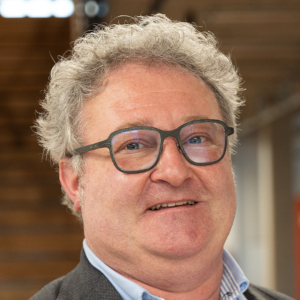LEISYS 2024 | Speakers
Meet experts from around the world - at Lancaster University in Leipzig or online.

Nils Jansen
Ruhr-Universität Bochum
Nils is a Full Professor at the Ruhr-University Bochum in Germany. He leads the Chair of Artificial Intelligence and Formal Methods. He is also an Associate Professor with Institute for Computing and Information Sciences at Radboud University Nijmegen, The Netherlands. His group conducts broad foundational and application-driven research. The group's vision of neurosymbolic AI brings together the areas of machine learning and formal methods, in particular, formal verification. His team tackles problems that are inspired by autonomous systems and planning problems in robotics.

Jan Křetínský
Technical University Munich
Jan is a professor for Formal Methods for Software Reliability at the Chair for Foundations of Software Reliability and Theoretical Computer Science, Technical University of Munich, Germany. His research areas include verification and synthesis, probabilistic model checking, applications of machine learning in verification, verification of learnt systems, explainable AI, temporal logics, automata theory continuous-time stochastic processes and games, and modal transition systems.

André Meyer-Vitali
Deutsches Forschungszentrum für Künstliche Intelligenz (DFKI)
André is a computer scientist who got his Ph.D. in software engineering, ubiquitous computing and distributed AI from the University of Zürich. He worked on many applied research projects on Ambient Intelligence and multi-agent systems at Philips Research and TNO in the Netherlands and contributed to AgentLink. He also worked at the European Patent Office. Currently, he is a senior researcher at DFKI focused on engineering and promoting Trusted AI and is active in the AI networks TAILOR and CLAIRE. He is principal investigator of the Centre for European Research in Trusted Artificial Intelligence (CERTAIN). His research interests include Software and Knowledge Engineering, Design Patterns, Neuro-Symbolic AI, Causality, Human-Agent Interaction, and Agent-based Social Simulation (ABSS) with the aim to create Trust by Design. He is also contributing to the development of standards and roadmaps for trustworthy AI at OECD and the German Ministry for Digital and Transport (BMDV).

Till Mossakowski
Otto-von-Guericke-Universität Magdeburg
Till is a professor of theoretical computer science at Otto-von-Guericke University of Magdeburg, Germany. He has co-designed the distributed ontology, model and specification language DOL, as well as the corresponding Heterogeneous Tool Set. His research interests are logic, knowledge representation, semantics, and neural-symbolic integration, as well as applications in energy network simulation models, chemistry and material sciences.

Maximilian Prokop
Technical University Munich
Max is a joint PhD candidate between TU Munich and Masaryk University Brno. He is part of the LiVe-Lab under the supervision of Jan Kretinsky where he works on applying learning techniques to the formal problem of LTL Synthesis. He is the main developer of the LTL Synthesis tool "SemML", which won the realizability track of Syntcomp2024.

Katja Seeliger
Max Planck Institute for Human Cognitive and Brain Sciences
After studying Computer Science and Media at Bauhaus University Weimar and Computational Neuroscience in at Technical & Humboldt University Berlin, Katja obtained a PhD in Cognitive Computational Neuroscience at Donders Institute in The Netherlands. She is now at Martin Hebarts Vision and Computational Cognition Group at Max Planck Institute for Human Cognitive and Brain Sciences in Leipzig.

Reinhard Stolle
Fraunhofer IKS
Reinhard directs the business unit Mobility at the Fraunhofer Institute for Cognitive Systems, focusing on the transfer of “AI for Safety” from research to industry. He has been active in the field of Artificial Intelligence for more than 30 years. He holds a PhD in Computer Science from the University of Colorado at Boulder and did a post-doc at Stanford University. His research experience centers around knowledge representation and reasoning techniques and spans from model-based reasoning to computational linguistics. Reinhard has an industry track record of developing and deploying software in automotive and safety domains including infotainment, driver assistance and autonomous driving. He previously served in leadership positions at Xerox PARC, BMW, Autonomous Intelligent Driving, and Argo AI.


